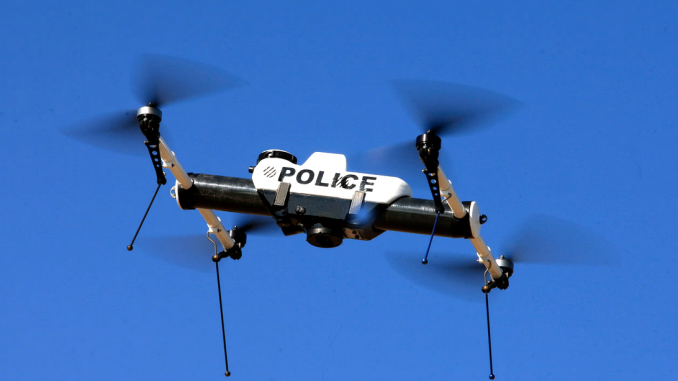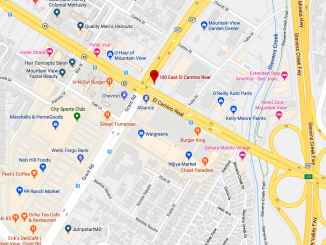
BY ALLISON LEVITSKY
Daily Post Staff Writer
Mountain View City Council wants to buy drones for police, firefighters and public works officials, but is also seeking assurance that city employees won’t use the flying cameras to invade people’s privacy.
In a study session Tuesday night (April 9), Councilwoman Alison Hicks asked police Lt. Saul Jaeger whether the drones would fly over neighborhoods like patrol cars, which could allow police to record video of residents in their backyards.
Jaeger responded that the drones would not patrol neighborhoods like cop cars do, and would not be launched from the police station.
Like police dogs, the drones would be carried around in police cars to be deployed for a particular purpose.
Drones could help monitor traffic
That could include monitoring traffic patterns after a major car crash, helping officers to find a fleeing suspect or to give police an aerial perspective on a “huge fight” downtown, Jaeger said.
The drones could help firefighters identify hot spots while battling a large blaze using infrared technology, which can also help police find a hiding suspect.
Public works employees could use the drones to inspect piping, wiring or the tree canopy. PG&E already uses drones to inspect power lines.
Police in Fremont, Modesto and Chula Vista currently use drones, while cops in Sunnyvale, San Jose and Santa Clara are also considering programs.
Jaeger said the drone policy would comply with the ACLU’s recommendations: don’t use drones as weapons, no random and proactive surveillance, no targeting people based on characteristics like race, and they’re not to be used outside of city business.
Retention policy
In addition to concerns about filming residents from overhead, the city will have to decide how much information to retain.
Jaeger said the current plan is to retain the videos under the same guidelines as video from body-worn cameras, and to use the same retention guidelines for drone videos that are released under the California Public Records Act.
Body-worn camera videos are retained for between six months and a year, depending on the content.
Mountain View resident Serge Bonte said he’s worked with drones professionally and urged the council to prioritize privacy and civil rights as the drones capture faces and other identifying information like license plates.
Outside oversight
Bonte also said the police drone program should be monitored by someone outside the department who is focused on privacy and civil rights. Jaeger said the idea was “interesting” and that police could explore that idea.
The council members agreed that privacy was a concern. Councilman Chris Clark suggested that the drone videos “redact” personal information like faces and license plates by blurring them, similar to Google Maps’ Street View function.
And Councilman Lucas Ramirez said the city should write a broader policy around surveillance technology at some point.
Mayor Lisa Matichak agreed with the suggestion, but said she didn’t want to slow down the drone program by writing that policy first.



